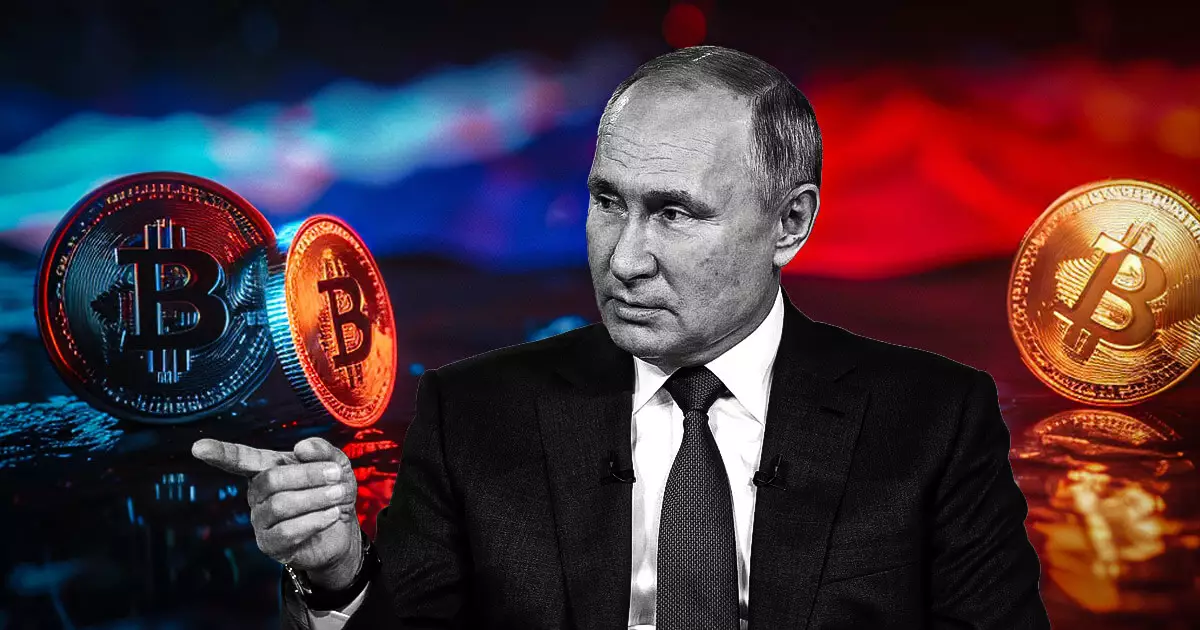In a bold declaration at the Investment Forum in Moscow on December 4, Russian President Vladimir Putin heralded Bitcoin (BTC) and other digital currencies as “unstoppable”. His assertion reflects a strategic pivot in how governments perceive and interact with cryptocurrencies, marking a potential shift in the global financial landscape. By positioning digital currencies as crucial tools for reducing financial inefficiencies and bolstering economic stability, Putin aims to reshape the narrative that surrounds the utilization of these assets.
Putin’s argument places Bitcoin in a direct opposition to the US dollar, which he criticized for being wielded as an instrument for political influence. Specifically, he referenced the substantial $300 billion in Russian reserves that were frozen following the onset of the Ukraine conflict in 2022. This incident has catalyzed a broader interest among countries in decentralized alternatives—alternatives that promise safety from external financial manipulation. By suggesting that “no one can ban Bitcoin”, Putin underscores a belief in the inherent resilience of digital currencies, bolstering a narrative that emphasizes autonomy in financial decision-making.
The backdrop of these declarations is a significant legislative shift in Russia, where a new law categorizing cryptocurrencies as property has been enacted. This framework not only offers tax benefits for transactions conducted through digital means but also exempts crypto mining and sales from value-added tax (VAT). Such moves illustrate Russia’s commitment to integrating cryptocurrencies into its economy, showcasing an effort to foster innovation while counteracting severe external pressures. The legal acceptance of cryptocurrencies signifies a deliberate choice by Russia to tap into the potential advantages of digital assets, particularly in the face of stringent sanctions.
The ongoing conflict in Ukraine has amplified the role of cryptocurrencies, enabling individuals on all sides to navigate the financial hurdles posed by war. The capacity for cryptocurrency transactions to transcend traditional banking systems provides a lifeline during turbulent times. This practical application of digital currencies not only highlights their utility but also positions them as a conduit for economic activity amid disruptions.
Conversations at the recent BRICS summit have further spotlighted digital currencies as instrumental in facilitating international payments while challenging the dominance of conventional financial systems. The implications of adopting cryptocurrencies are profound, suggesting a potential reimagining of how global commerce operates.
Putin’s enthusiastic advocacy for Bitcoin contrasts starkly with the evolving stance of other global powers, including anticipated changes in the United States under new leadership. The prospect of a national Bitcoin reserve, suggested by President-elect Donald Trump, reflects a growing recognition of the relevance of cryptocurrencies. The increasing acceptance of digital currencies may push many countries to reconsider their regulatory frameworks, potentially leading to a more favorable atmosphere for innovation in the fintech space.
Putin’s recent remarks engender a significant conversation about the future of financial systems, with Bitcoin at the forefront of this discourse, as nations navigate the intertwining complexities of geopolitical tensions, economic autonomy, and technological progress.


















